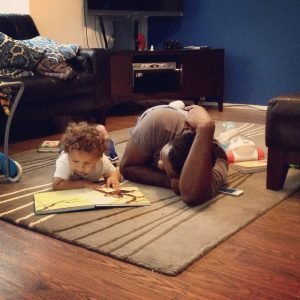Reluctant Readers: Not Unintelligent, Just Not Ready
What is one of the first things homeschooling moms want to teach their children? How to read! Yes! So, Mom is ready, but is Joe? A lot has to happen for a child to be ready to read, and intelligence itself is a minor factor. It's more about development. Development and intelligence are not the same thing.
We approached teaching my grandson Connor to read with a lot of trepidation. It felt as if this was the first real test as to whether or not he was "smart." We all want smart kids, right? I mean, we were going to keep loving him, regardless, but how much easier homeschooling would be if he didn't have learning challenges. How validating it is for us, if our children are "smart."
Rubbish. It's rubbish because how quickly and how well a child learns to read is not a direct reflection of his intelligence. Genetics plays a role, but not more than environment and the child's natural inclinations. And so what anyway? We all have different gifts bestowed on us by our Heavenly Father and super intelligence is not the end-all. Intelligent children (or adults) are not better than less intelligent people. They aren't happier. They aren't kinder or braver or more faithful. Sometimes the adult, for all the wrong reasons, puts so much pressure on the child learning to read, that he is set up for failure.
How do I help him get ready?
Relax. Learning to read is going to be one of the most important things your child accomplishes, but he has years to master it. Don't begin before he is ready. To help him be ready, read aloud to him often. Let him see you reading and enjoying it. Talk, talk, talk about what you are reading. Provide mazes and dot-to-dots to train his eyes to track. Have lots of different types of books throughout the house and don't be a book gorilla. We want our child to take care of all things, but if accidentally tearing a page sends you into a conniption fit, your child will respond by not wanting to touch the books.
Part of what must happen before he is ready to read is eye development. Those little letters swim around on the page, so expose him to words in large print. He's not going to be ready until his eyes are. Researchers tell us that eyesight is not fully developed in some children until they are around nine years old, rarely before seven. The ability for both eyes to converge on a single subject is a prerequisite to reading--and no amount of bribing, nagging or discipline will change that. Your child's reluctance to read can simply be a matter of vision development, but we make it worse when we push for the child to do what he is not ready to do.
Children Learn at Their Own Pace.
One of the blessings of homeschooling is letting our children learn at a pace that works for them. When we wait for the child to develop physically and emotionally, we have fewer problems. It is a myth that children who learn to read "late" do poorly in school. What feeds that myth is the poor attitude children develop when pushed beyond their ability. They begin too early, fail, feel frustrated, sense their parents' frustration and decide they don't like to read before they have a chance to learn.
All of this is good news. None of the suggestions for getting your child ready to read are difficult or cumbersome. Remove the pressure and enjoy the journey.
But there's more coming in the next blog: Books for Reluctant Readers.

